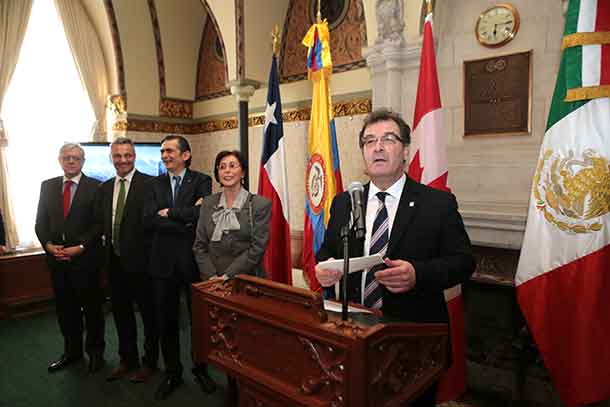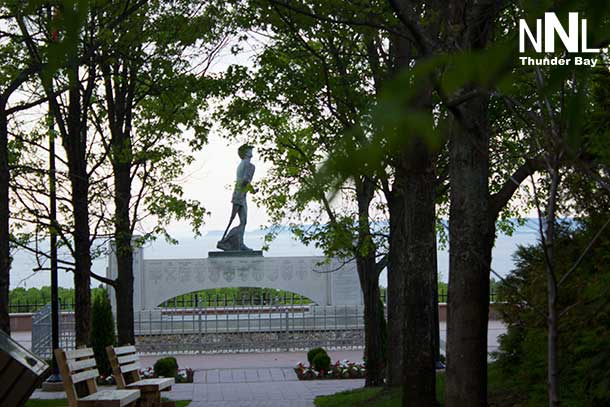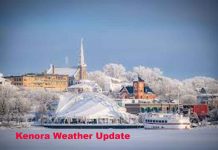
“There is plenty of room to grow in rural Canada. It is a place to raise a family and prosper.”
KENORA – POLITICS – When you travel throughout Canada there is a certain expectation of safety. At our airports, you expect innovative navigational aids to be used for safe landings and you expect the runway to be paved and well lit. When travelling by land, you anticipate our roads, especially the TransCanada Highway, to be safe and well maintained. With the recent release of the Auditor General of Canada’s report on the state of civil aviation infrastructure in the North, and the provincial government’s Northern Highways Program report, it is clear that both the provincial and federal governments have lost sight of the critical transportation needs of rural Canadians.
As the Member of Parliament for the Kenora riding, which accounts for 17 of Canada’s remote northern airports and relies heavily on the Trans-Canada Highway #17, I would like to highlight the essential services provided by these transportation systems, and make a call for strong, dedicated leadership from both levels of government to address the transportation needs of rural Canada, particularly in Northern Ontario.
The Auditor General’s report focused on the safety and efficiency of rural airport infrastructure. In many cases, these airports represent the only reliable, year-round mode of transportation for the communities they service. While these airports generally fall under the purview of their respective provincial or territorial government, 67 of the 117 airports are approved for Federal funding under Transport Canada’s Airports Capital Assistance Program (ACAP).
Remote northern airports and roads are the lifeline for many of the communities they service, bringing essential healthcare services, food, and fuel to residents. For many northern First Nations without road access, air transport is often the only reliable method of transport in emergency situations such as medical evacuations. It also serves as a method of travel between vastly spread out, sparsely populated areas. Operating under the unpredictable and often severe weather conditions of the North can be difficult and expensive, yet providing service despite these conditions – and remaining safe – is paramount.
In order to tap into the vast resources of the North, such as mining and forestry, we need to invest strategically to vastly improve our transportation infrastructure. Once these investments are in place, the private sector can do what it does best by creating new opportunities leading to jobs and greater economic prosperity.
To help illustrate the challenges faced in rural communities, today Transport Canada’s Airports Capital Assistance Program (ACAP) contributes $38M annually to airports approved for funding under the program’s guidelines. This amount has remained stagnant for 17 years. Since 2000, when the annual funding was increased to the current $38M, it has remained unresponsive to inflation or the growing need to maintain and improve rural and remote airport infrastructure. When inflation is factored in, the real rate of investment has dramatically declined. According to the Bank of Canada, in today’s dollars, it would take $52M, just to maintain the same level of investment. Imagine how our urban city airports would operate if their funding did not match inflation and remained stagnant for 17 years. This would not be tolerated by urban Canadians.
There is plenty of room to grow in rural Canada; it is a place for families and with improved infrastructure, it is a place to develop a thriving business enterprise. The cost of living is reasonable and the quality of life in rural communities is preferred by many. However, Canadians still want job opportunities and the services of the 21st century. Today’s technology makes this all possible, and now we need strong leadership from all levels of government to make the economic commitments required to put rural Canadians on a level playing field when competing in today’s global economy.
If we truly want to continue to build a diverse and prosperous nation we must invest and connect the North. It requires vision and courage by our provincial and federal leaders to recognize that rural Canadians have the right to demand the same access to goods and services that urban Canadians often take for granted.
Canada extends beyond our city centres to a place called rural Canada. Together we are a diverse country, and no Canadian should be treated as a second-class citizen, regardless of where they call home.
Hon. Bob Nault MP






